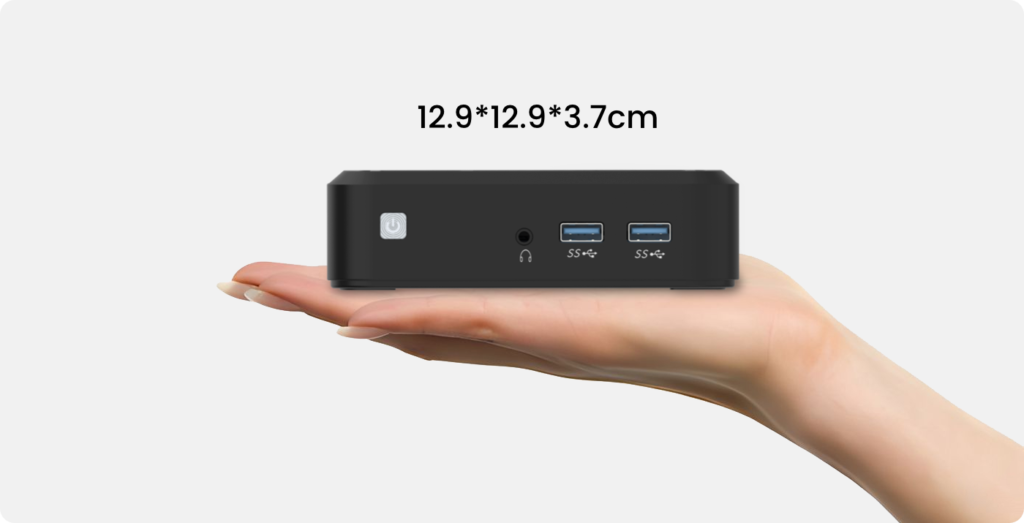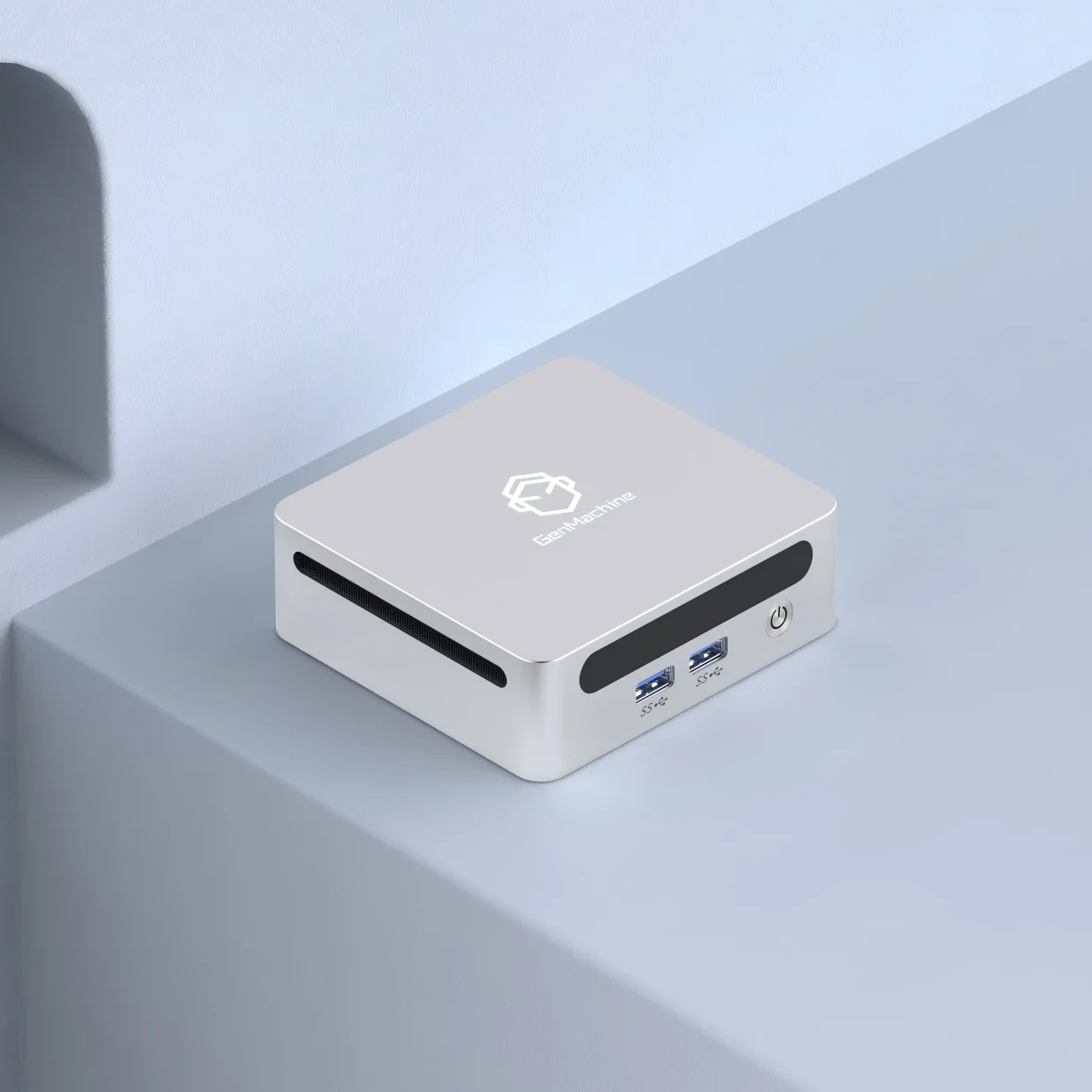Mini PCs are quickly changing how gaming setups look and feel. As gaming trends lean toward compact and minimalist desk space, a small PC for gaming has become a popular solution for players who want powerful performance without a bulky tower. With technological improvements in cooling, connectivity, and component efficiency, a mini PC today can support impressive gaming performance while staying portable and energy-efficient.
Choosing the right device, however, can feel overwhelming. Many options exist, each highlighting different features such as performance, storage, cooling system, or customization. This ultimate guide for 2025 focuses on helping gamers understand the critical factors that determine whether a tiny PC is suitable for gaming—without getting lost in unnecessary technical jargon.
Why Gamers Are Switching to Mini PCs
Compact but Powerful
A mini PC offers computing power in a space-saving design. The compact size fits easily in small rooms, dorms, and shared spaces, making it suitable for gamers with limited desk area or who prefer a cleaner aesthetic.
Efficient and Quiet Gaming Experience
Mini PCs typically consume less power. Modern cooling technologies keep the system quiet even under heavy gaming loads, avoiding the loud fan noise often found in larger desktop towers. Unlike traditional desktops, a small PC can be moved easily between rooms, taken to a friend’s house for LAN gaming, or used for gaming while traveling.
Key Factors to Consider When Choosing a Gaming Mini PC
1. Performance: The Heart of a Gaming Mini PC
When evaluating performance, focus on three core components:
Processor (CPU): Influences game loading, responsiveness, and overall smooth performance.
Graphics Capability (Integrated or Dedicated): Determines visual quality and supports higher resolutions in games.
Memory (RAM): Helps games and multitasking run smoothly.
For modern gaming, look for a compact PC designed with gaming-oriented chipsets and high-efficiency architecture. Prioritize a configuration that supports multitasking—such as playing games while streaming or browsing. If you’re still exploring performance levels suitable for different types of gamers, check out beginner-friendly evaluation results in our comparison roundup— for more information, see our article Top 5 Gaming Mini PCs for Casual and Mid-Level Gamers.

2. Cooling System: Essential for Consistent Gaming Performance
Gaming generates heat. When heat accumulates, performance drops, and frame rates may lag. The cooling design in a tiny PC is therefore crucial. Good cooling design ensures:
- Stable gaming performance during extended play
- Quiet operation
- Longer system lifespan
Choose a mini PC with optimized airflow and advanced heat dissipation.
3. Storage: Faster Loading, Better Experience
Two things matter most when evaluating storage:
- Type of storage (solid-state drives provide faster loading and smoother gameplay)
- Expandable options
Games get larger every year. A small PC should offer a flexible storage design so additional drives can be added later without replacing the entire system.
4. Upgrade Flexibility: Keep the Mini PC Future-Ready
Avoid machines with completely sealed structures that restrict all upgrade paths. Gamers often upgrade components over time. The best mini PC for gaming offers:
- Replaceable or expandable memory
- Additional slots for extra storage
- A chassis design that allows easy access
5. Connectivity Options: Never Compromise on Gameplay
A gaming setup typically includes:
- External monitors
- Mechanical keyboards
- High-speed gaming mice
- Wireless headsets
Therefore, multiple connectivity options ensure a smooth experience. Look for:
- Several high-speed USB ports
- Modern display output options
- Stable wireless connectivity
With the right ports and transmission capabilities, gaming becomes smooth without annoying cable limitations.
Who Should Buy a Gaming Mini PC?
Even hybrid users—streamers, gamers, and content creators—can enjoy the advantages of compact performance. A tiny PC for gaming is ideal for:
- Students and dorm users
- Gamers with limited desk space
- Streamers who prefer compact and quiet setups
- Gamers who attend LAN parties or travel often
User Experience Benefits Beyond Gaming
The same features that benefit gaming—fast processing, efficient cooling, compact design—benefit daily usage as well. Mini PCs are not only for gaming. They are also capable of:
- Video editing
- Photo editing
- Everyday productivity tasks
- Media center/home theater use

Why Many Buyers Choose A Professional Mini PC Manufacturer
Behind every powerful mini PC is a skilled manufacturer that understands both gaming expectations and production precision. Continuous development and certification standards contribute to consistent product reliability and performance. GenMachine has extensive experience in designing and manufacturing mini PCs. With multiple automated production lines, SMT technology, and a dedicated engineering team, GenMachine supports:
- ODM and OEM customization
- Custom chassis color
- Custom logo branding
Practical Buying Checklist (Bookmark This)
Before ordering a gaming mini PC, review this checklist:
| Question | Why It Matters |
|---|---|
| Does the mini PC support memory and storage upgrades? | Extends the lifespan of the device |
| Is there an efficient cooling system? | Keeps games running smoothly |
| Are there enough ports for gaming peripherals? | Better setup flexibility |
| Is the device easy to carry or movable? | Ideal for dorms and travel |
| Does the manufacturer provide customization or technical support? | Helps with future needs and upgrades |
Conclusion: Choosing the Best Mini PC for Gaming in 2025
With smart planning and the right selection process, a mini PC can deliver competitive gaming performance while saving space and energy. A gaming mini PC can deliver powerful performance while maintaining portability and flexibility—something a traditional desktop cannot offer. To choose the best model, remember the five essential elements:
- Strong performance
- Efficient cooling
- Expandable storage
- Upgrade flexibility
- Rich connectivity options





